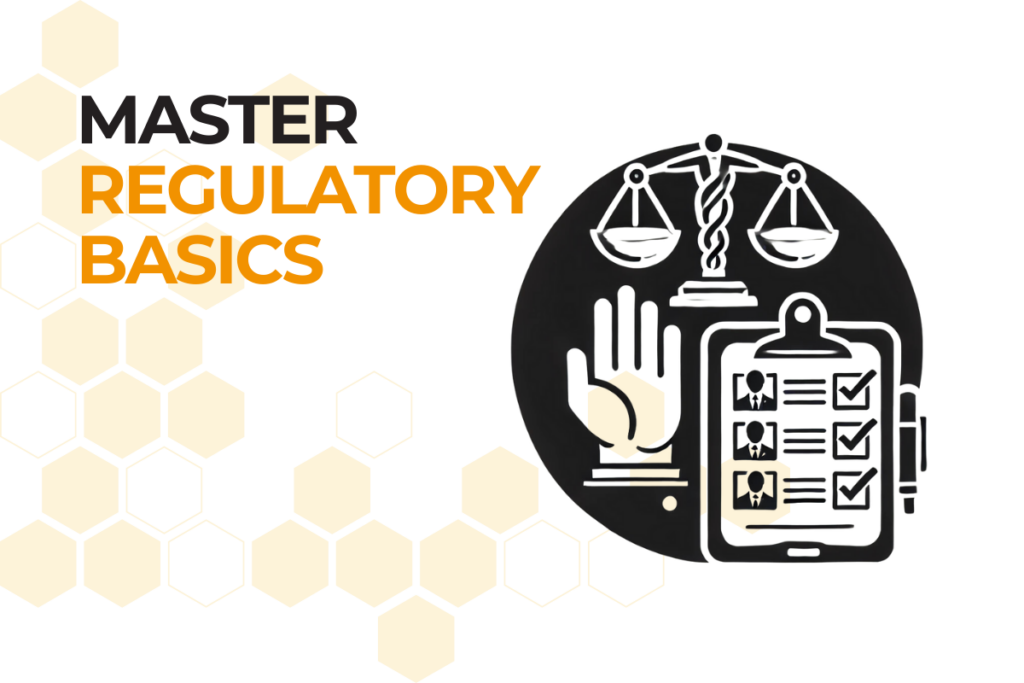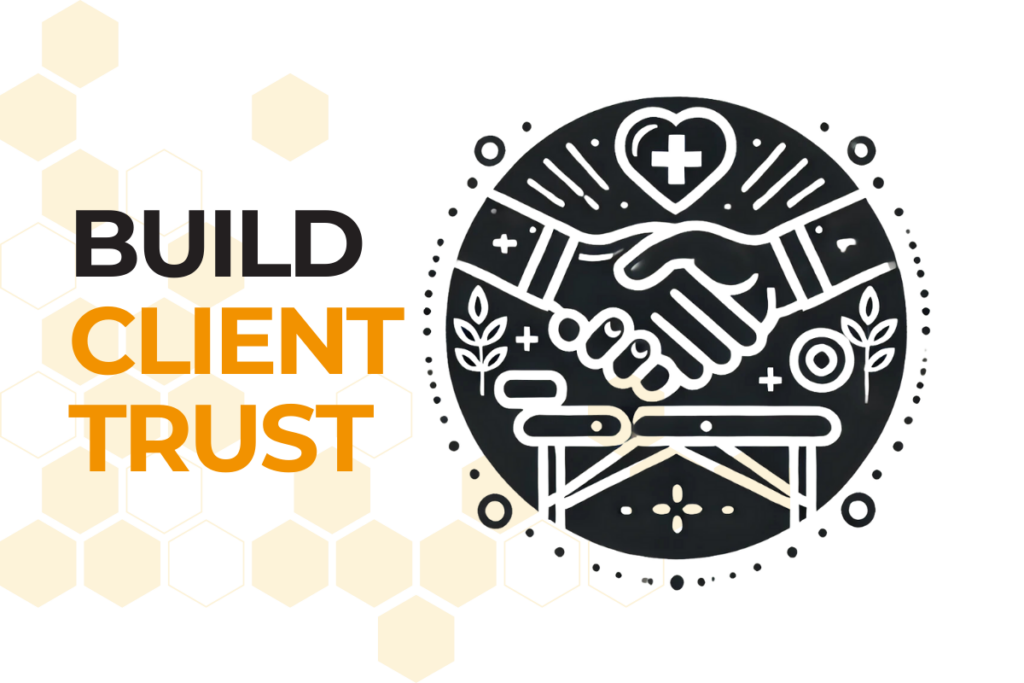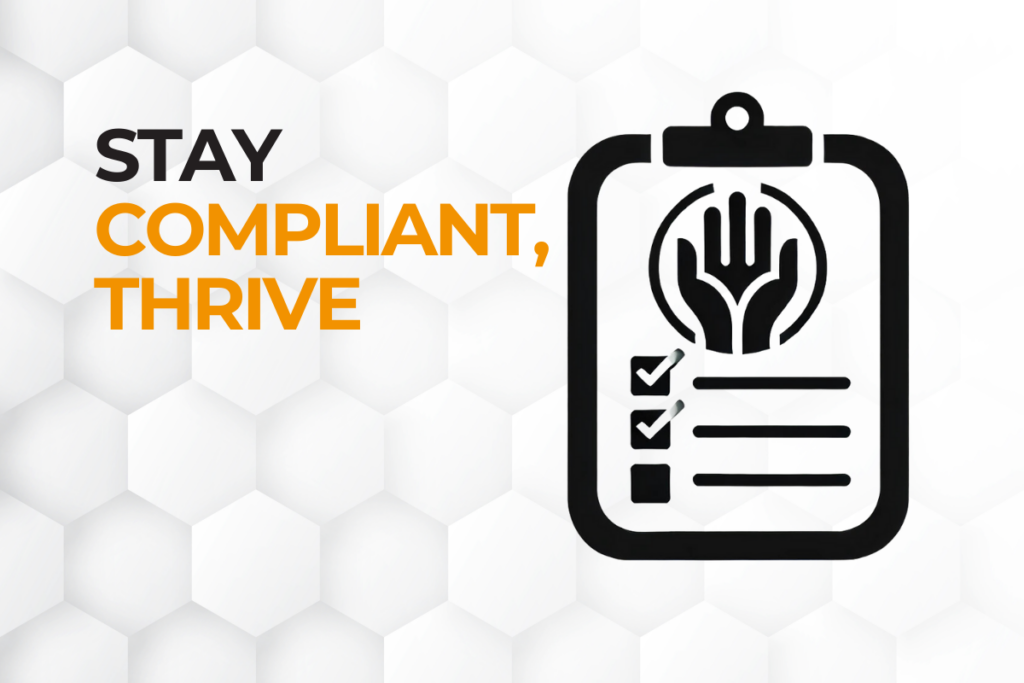Ensuring Your Clinic Stays Compliant and Thrives
A well-crafted massage clinic compliance guide is essential for ensuring that therapeutic massage clinics operate smoothly and meet evolving industry regulations. Beyond delivering exceptional client care, clinic owners must adopt a proactive approach to compliance, as even minor oversights can lead to penalties or damage to a hard-earned reputation. Studies reveal that over 70% of small businesses face compliance issues annually, emphasizing the need for diligent and effective strategies to navigate these challenges.
For massage clinic owners, the complexities of compliance are especially demanding: regional regulations vary, documentation requirements can be extensive, and small teams often balance compliance tasks alongside daily client care. Navigating these responsibilities while maintaining high standards can feel overwhelming. That’s why having a solid compliance plan is critical. In this guide, you’ll find practical steps to help you stay up-to-date with regulations, safeguard your business from costly missteps, and build client trust by showcasing your commitment to safety and professionalism. These strategies will empower you to focus on delivering exceptional care while ensuring your clinic remains compliant and ready to thrive.
Understanding the Regulatory Landscape in Massage Therapy
Identifying Key Regulatory Bodies and Requirements
A comprehensive massage clinic compliance guide highlights how regulations in massage therapy ensure client safety and standardize professional practices, though these regulations can vary widely across regions. It’s essential to be familiar with the specific bodies governing your area, which may include state or provincial licensing boards and health departments. These organizations set standards for licensing, sanitation, record-keeping, and other operational aspects to ensure compliance and professionalism.
- Tip: Regularly visit official websites or subscribe to newsletters from relevant regulatory bodies to stay informed of any updates.
Staying Up-to-Date with Changes
Regulatory changes are frequent, making it essential to follow a reliable massage clinic compliance guide and develop a system to monitor updates. Whether it’s changes in sanitation protocols or new licensing requirements, staying informed can safeguard your clinic from unexpected fines or closures. Consider joining a professional association that offers regular updates. You can also refer to updates from regulatory bodies for the latest industry compliance trends.
- Consider joining a professional association that offers regular updates.
- Attend industry seminars or webinars that cover regulatory trends.

Implementing Effective Compliance Strategies in Your Clinic
Developing a Compliance Checklist for Your Clinic
A compliance checklist serves as an essential tool, helping you and your staff maintain a high standard. Include items such as:
- Valid licensing for all practitioners
- Documented sanitation protocols
- Detailed client confidentiality agreements
- Proper record-keeping practices that meet regulatory standards
Creating a physical or digital checklist will keep these requirements top of mind and make it easy to conduct internal audits.
Training Your Team on Regulatory Standards
Ongoing education is critical to ensuring all team members understand current regulations. Schedule regular training sessions to review compliance protocols, especially as new guidelines emerge.
- Training topics to cover: sanitation, privacy policies, and documentation standards.
- Tip: Encourage staff to ask questions to clarify procedures, ensuring they feel confident and informed.
Using Technology to Simplify Compliance Management
Leveraging Compliance Management Software
Technology offers valuable tools to streamline compliance tasks. Compliance management software can help automate reminders for license renewals, organize required documentation, and manage records efficiently. This allows you to maintain a focus on client care while reducing the administrative burden. Learn more about effective reporting and analytics to simplify compliance and support informed decision-making in your clinic.
- Look for software that includes features like digital record-keeping, automated reminders, and document storage for an all-in-one solution.
Maintaining Secure Digital Records
Digital record-keeping saves space and reduces the risk of misplaced paperwork, but it requires attention to data security. Choose platforms with encryption features to ensure compliance with privacy laws, such as those related to client health information.
- Tip: Schedule regular data backups to prevent any loss of client information and ensure easy access during audits.
Conducting Regular Compliance Audits
Setting Up an Internal Audit Schedule
Internal audits are essential for catching compliance issues before they escalate. Schedule quarterly or bi-annual audits to assess your clinic’s compliance status. Audits should cover licensing, sanitation protocols, and documentation practices.
- Audit checklist: Verify license expiration dates, assess adherence to sanitation standards, and review client documentation for accuracy.
Resolving Compliance Issues Swiftly
When non-compliance issues arise, addressing them quickly is vital to avoid penalties. Develop a clear action plan for resolving any gaps uncovered during audits, which may involve updating policies, scheduling additional staff training, or revising documentation practices.

Building a Culture of Compliance in Your Clinic
Cultivating a Compliance-First Mindset Among Staff
Encouraging a compliance-focused culture means emphasizing the importance of regulations for client safety and clinic success. Recognize and reward staff for their compliance efforts and make adherence part of performance evaluations.
- Tip: Incorporate compliance topics into team meetings, using real-world examples to reinforce the impact of regulations on daily operations.
Engaging Clients in Compliance Efforts
Client education can foster understanding and enhance trust in your clinic. Inform clients of any necessary protocols, such as sanitation procedures or privacy policies, to help them understand the steps you take to protect their well-being.
- Example: Display a notice at the reception about your clinic’s commitment to hygiene and confidentiality, providing reassurance to new and returning clients alike.
The Long-Term Rewards of Prioritizing Compliance
Staying proactive with compliance isn’t just about avoiding penalties—it’s about leveraging a massage clinic compliance guide to build a strong foundation for your clinic’s reputation and success. Consistent compliance demonstrates to clients that your clinic prioritizes their safety and upholds the highest industry standards. By adopting these strategies, your clinic can thrive, foster trust, and steer clear of common compliance pitfalls.
FAQs
It’s best to review and update your compliance checklist annually or whenever there are significant regulatory changes. Keeping this document current helps you avoid overlooking critical requirements.
To comply with privacy laws, use software that provides encryption and meets data protection standards relevant to healthcare records. This ensures client confidentiality and aligns with industry requirements.
Professional associations provide members with valuable resources, such as regulatory updates, training opportunities, and industry news, which help you stay compliant with minimal effort.
Prepare by organizing all necessary documentation, ensuring licenses are up to date, and conducting an internal audit beforehand. Being well-prepared demonstrates your commitment to compliance and can expedite the audit process.
By implementing these strategies, your clinic can achieve compliance excellence while staying focused on client care.


